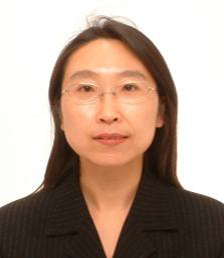Jianyong Zhang——Associate Professor |
|
|
Nationality:
|
CANADA
|
|
Phone:
|
022-27401021
|
|
Email:
|
Jianyong.zhang@tju.edu.cn
|
|
Office:
|
Room 506, Building 24, Tianjin University
|
|
School:
|
School of Pharmaceutical Science and Technology
|
|
ResearcherID:
|
|
|
Group weblink
|
|
Education Experience
| 2007 | Postdoctoral | McGill University, Canada |
| 2007 | Ph. D. | University of Tsukuba, Japan |
Professional Experience
| 2014-2015 | Assosiate Professor | Tianjin University, China |
| 2007-2011 | Postdoctoral | McGill University, Canada |
| 2001-2007 | Teaching Assistant | University of Tsukuba, Japan |
| 1992-2000 | Physician and Physician-in-charge | Tianjin 4th Central Hospital, China |
Research Area
Honors and Awards
| Best Teacher Award, Tianjin 4th central hospital, 1994 |
| Best Teacher Award, Tianjin 4th central hospital, 1995 |
Patents
Highlighted Publications
| Li, Xiaoyu#; Zhang, Jianyong#; Jia, Rui; et al. The MOV10 Helicase Inhibits LINE-1 Mobility.(#Co- first author) Journal of Biological Chemistry Volume: 288 Issue: 29 Pages: 21148-21160 Published: JUL 19 2013 |
| Zhang, Jianyong; Liang, Chen. BST-2 Diminishes HIV-1 Infectivity. Journal of Virology Volume: 84 Issue: 23 Pages: 12336-12343 Published: DEC 2010 |
| Rong, Liwei; Zhang, Jianyong; Lu, Jennifer; et al. The Transmembrane Domain of BST-2 Determines Its Sensitivity to Down-Modulation by Human Immunodeficiency Virus Type 1 Vpu. Journal of Virology Volume: 83 Published: DEC 2009 |
| Zhang, Jianyong; Hosoya, Tomonori; Maruyama, Atsushi; et al. Nrf2 Neh5 domain is differentially utilized in the transactivation of cytoprotective genes. Biochemical Journal 15;404(3):459-66, Jun 2007 |
| Zhang, Jianyong; Ohta, Tsutomu; Maruyama, Atsushi; et al. BRG1 interacts with Nrf2 to selectively mediate HO-1 induction in response to oxidative stress.Molecular and Cellular Biology Volume: 26 Issue: 21 Pages: 7942-7952 Published: NOV 2006 |
